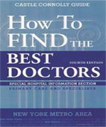- February 2023
- January 2023
- December 2022
- November 2022
- October 2022
- September 2022
- August 2022
- July 2022
- June 2022
- May 2022
- April 2022
- March 2022
- February 2022
- January 2022
- December 2021
- November 2021
- October 2021
- September 2021
- August 2021
- July 2021
- June 2021
- May 2021
- April 2021
- March 2021
- February 2021
- January 2021
- December 2020
- November 2020
- October 2020
- September 2020
- August 2020
- July 2020
- June 2020
- May 2020
- April 2020
- March 2020
- February 2020
- January 2020
- December 2019
- November 2019
- October 2019
- September 2019
- August 2019
- July 2019
- June 2019
- May 2019
- April 2019
- March 2019
- February 2019
- January 2019
- December 2018
- November 2018
- October 2018
- September 2018
- August 2018
- July 2018
- June 2018
- May 2018
- April 2018
- March 2018
- February 2018
- January 2018
- December 2017
- November 2017
- October 2017
- September 2017
- August 2017
- July 2017
- June 2017
- May 2017
- April 2017
- March 2017
- February 2017
- January 2017
- December 2016
- November 2016
- October 2016
- September 2016
- August 2016
- July 2016
- June 2016
- May 2016
- April 2016
- March 2016
- February 2016
- January 2016
- December 2015
- November 2015
- October 2015
- September 2015
- August 2015
- July 2015
- June 2015
- May 2015
- April 2015
- March 2015
- February 2015
- January 2015
- December 2014
- November 2014
- October 2014
- September 2014
- August 2014
- July 2014
- June 2014
- May 2014
- April 2014
- March 2014
- August 2013
- July 2013
- June 2013
- May 2013
- April 2013
- March 2013
- February 2013
- January 2013
- December 2012
- November 2012
- October 2012
- September 2012
- August 2012
- July 2012
- June 2012
- May 2012
- April 2012
- March 2012
- February 2012
- January 2012
- December 2011
- November 2011
- September 2011
- January 2011
- December 2010
- November 2010
- September 2010
- August 2010
- May 2010
- December 2009
Archive for January, 2019
How You Can Lose Weight And Keep it Off in 2019
 If there’s one thing that’s at the forefront of most people’s minds during the new year, it’s weight loss. If you have some excess weight that you’ve been trying to lose but just haven’t been able to, then this article is for you. Here at Dr. Weinstein’s office we like to see all of our clients succeed. Let’s take a closer look how you can take your dreams of having a slimmer figure and turn them into your new reality.
If there’s one thing that’s at the forefront of most people’s minds during the new year, it’s weight loss. If you have some excess weight that you’ve been trying to lose but just haven’t been able to, then this article is for you. Here at Dr. Weinstein’s office we like to see all of our clients succeed. Let’s take a closer look how you can take your dreams of having a slimmer figure and turn them into your new reality.
Set Realistic Goals
One of the reasons why so many resolutions fail by February is because people set unrealistic goals. When you are trying to lose weight, make sure that you set goals that are attainable. For instance, trying to lose 10 lbs in a month may not be realistic, but 5 lbs might. If you need help setting realistic goals, talk to our staff.
Watch What You Eat
If you really want to lose weight, then you should start by watching what you eat. You may not realize it now, but you are probably eating more calories than your body actually needs each day. Remember that you don’t’ have to go on any sort of crazy fad diet to see results, you can successfully diet by cutting out sugars, watching your carbs, and eating a lot of lean protein.
Consider Liposuction
One of the most frustrating things about losing weight is not being able to lose it all. If you are in a position where you feel like you just can’t lose an extra 10-15 lbs, then liposuction may be able to help. Contrary to popular belief, liposuction is actually for patients who are close to their goal weight. Which means, that if you just need an extra push, then it may be the perfect thing for you.
Make 2019 the year that you wear a bikini and feel sexy in it. To learn more about how you can get the body of your dreams, contact our Chester office and give us a call at 908-879-2222.
Posted in Health and Fitness on January 15th, 2019
How Much Sleep Do You Need for Younger-Looking Skin
 It’s not called beauty rest for nothing and science seems to agree. The findings of a recent research by physician scientists at the University Hospitals (UH) Case Medical Center revealed that poor sleep quality could actually weaken the skin’s ability to repair itself. Hence, individuals with poor quality of sleep tend to exhibit advanced signs of skin aging. Here at our New Jersey plastic surgery practice, we encourage our clients to take care of their skin both from the inside and out, which includes getting high quality sleep.
It’s not called beauty rest for nothing and science seems to agree. The findings of a recent research by physician scientists at the University Hospitals (UH) Case Medical Center revealed that poor sleep quality could actually weaken the skin’s ability to repair itself. Hence, individuals with poor quality of sleep tend to exhibit advanced signs of skin aging. Here at our New Jersey plastic surgery practice, we encourage our clients to take care of their skin both from the inside and out, which includes getting high quality sleep.
Phases of Sleep
Sleep is your body’s way of recovering from all the work it did during the day. To improve your quality of sleep, it is also crucial that you understand the different phases of sleep.
Deep and Light Sleep – are the two phases that simultaneously occur during the first few hours of sleep. During these phases, your brain’s neurons slow down while growth hormones are at its peak for muscle tissue repair. Your immune system is also trying to recover around this time.
REM Sleep – Short term memories are consolidated and transferred to your long-term memory banks. This phase largely influences your ability to focus the next day.
Do Length and Timing Matter?
You’ve probably heard about the 8-hour requirement for a good night’s sleep. It turns out that this is actually just a myth. A study published in this Time article found out that people who sleep between 6.5 and 7.5 hours a night are actually happier, more productive, and live the longest. Interestingly, those who sleep longer tend to suffer from depression, obesity, and heart disease.
The key lesson from such findings is to actually observe how many hours of sleep make you feel refreshed the next day. Also, once you notice that you’re nodding off at 9pm , hit the sack, and do not just shake of that “sleepy” feeling.
To arrange your initial consultation with Dr. Weinstein and learn more about ways to help your skin look youthful, get in touch with us at our Chester Clinic by calling us at (908)879.2222 or by filling out this contact form. Make an appointment today and experience the life changing effects of plastic surgery!
Posted in Health and Fitness, Plastic Surgery, Statistics on August 23rd, 2013
Exercise critical for good health and good looks.
Negative Emotions Outweigh Intent to Exercise at Health Clubs
ScienceDaily (Dec. 17, 2009)
Time and time again, it has been documented that regular exercise has many health benefits including lowering risks associated with the comorbidities of obesity. With only 30% of Americans trying to lose weight meeting the National Institutes of Health exercise guidelines of 300 minutes/week, a study in the January/February 2010 issue of the Journal of Nutrition Education and Behavior explores the paradox that exists — an antidote for obesity and its comorbidities is exercise, but the majority of obese Americans do not exercise. Investigators explore and compare the barriers associated with regular exercise in health clubs between overweight and normal weight individuals.
Researchers at The George Washington University Medical Center examined overweight individuals’ intent to exercise at health clubs by administering an online survey instrument based on Ajzen’s Theory of Planned Behavior. This theory is based on
- one’s attitude toward the behavior in question,
- the perceived social pressure (subjective norm) to perform the behavior, and
- the ease or difficulty with which one can actually perform the behavior (perceived control).
Of the 1,552 individuals surveyed, 989 were classified into the overweight category.
The researchers found overweight individuals believed exercise improved appearance and self image more than normal weight individuals. In addition, overweight individuals felt more embarrassed and intimidated about exercising, exercising around young people, exercising around fit people, and about health club salespeople than individuals of normal weight. Overweight and normal weight individuals felt the same about exercising with the opposite sex, complicated exercise equipment, exercise boredom, and intention to exercise. The study interestingly found that the demographics of older age and overweight Caucasians (versus overweight non-Caucasians) had more of an effect on exercise intent than did weight. Most notably, the heavier the subject’s weight, the lower his or her perception of health. In other words, for the overweight, sedentary person, the negative emotions associated with health club exercise may be stronger in controlling regular exercise than the intellectual facts.
Writing in the article, the authors state, “One of the most noteworthy findings of this study was that OW [overweight] and NW [normal weight] subjects did not differ in their overall attitude toward exercising at a health club. This similarity in overall attitude of the OW and NW to club exercise is somewhat surprising, in that it is often assumed that OW people do not exercise as much as NW people because the 2 groups have different attitudes about exercise.
The behavior theories that propose that attitude drives the intent to exercise describe attitude as an evaluation of positive versus negative. If this is the case, then, it is important to minimize the negative and maximize the positive in order to promote the desired behavior. Thus, it would be wise for exercise professionals and commercial health clubs to help OW people feel more comfortable around those who are different from themselves and to minimize the intimidating aspects of the exercise environment, while promoting the benefits of exercise to personal health and wellbeing.
Regardless of which subset of the OW population is the target for increasing health club exercise, the ultimate goal is to increase the number of positive beliefs the individual has concerning exercising in a health club…Accordingly, individual beliefs about health club exercise should be evaluated for each new client. If a plan to increase the positive beliefs and reverse the negative beliefs is constructed and followed, the likelihood of retention of that client will be augmented.”
Note: Diet and exercise are more important than liposuction for good looks and good health. Larry Weinstein, MD FACS
Posted in Health and Fitness on December 18th, 2009
Request A Consultation

Office Hours
Monday: 9am-6:30pmThursday: 9am-5:30pm
To make an appointment 9-5 everyday.
Please email us for an appointment 24/7 or call our office and leave a message for our staff that will be returned the next business day.
Phone: 908-879-2222
Holiday Hours
Closed: Labor Day
Closed: Memorial Day





